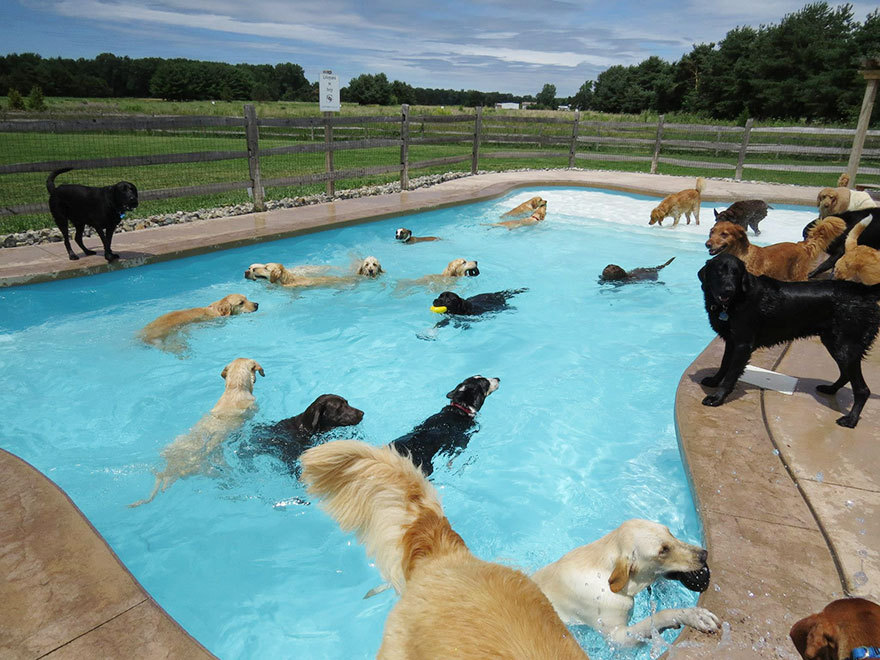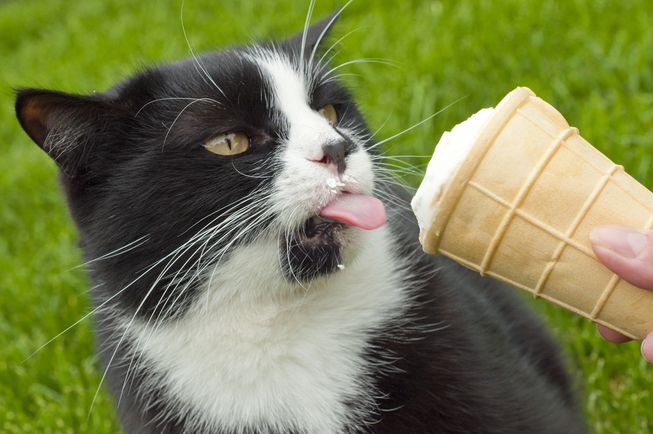Keep pets cool
With temperatures rising, summer can be an uncomfortable season for our pets. Put yourself in their paws and think how hot you’d feel if you wore a fur coat on a baking hot day!
Here’s our vets’ advice about how to keep your pets cool this summer:
Dogs
- Cool walkies: Walk dogs in the morning or evening – before 8am and after 5pm is best. This stops them overheating in the midday sun.
- Take the five second test: Pavements and sand can get very hot in the middle of the day. They can quickly burn your dog’s paws. Check the temperature of the pavement with your own hand – if it’s too hot for you to hold your hand there for 5 seconds, it’s too hot for your dog!
- Dogs die in hot cars: Never leave your dog in a hot car – it can be fatal.
- Safe summer road-trips: Always make sure your dog is safely secured in your car. Don’t let them lean out of the window. Their eyes or nose can be injured by debris or small stones kicked up from the road. Pets have also been known to fall out, or be injured by passing vehicles.
- Tasty summer treats: Keep your dog hydrated with some tasty summer treats.
READ MORE ABOUT KEEPING DOGS COOL
Cats
- Make sure your cats have access to shade and plenty of drinking water during the day.
- Don’t leave them in cars, caravans or conservatories – they can quickly overheat.
- Keep your dog hydrated with some tasty summer treats.
READ MORE ABOUT KEEPING CATS COOL
Rabbits and guinea pigs
- Don’t leave hutches in direct sunlight and make sure they have a shady area to relax in if they get too hot – their hutch roof must be solid for shade and safety and their exercise run should also have a covered area.
- Never keep your rabbit or guinea pig in a greenhouse or conservatory – they can quickly overheat.
- Make sure they have plenty of clean water throughout the day.
- Leave a glass jar filled with ice cubes, so they have something cool to lie against in hot weather.
READ MORE ABOUT KEEPING RABBITS AND GUINEA PIGS COOL
Budgies, chickens and fish
- Make sure your feathered friends have plenty of water throughout the day.
- Give your chickens a dust bath – they’ll appreciate the chance to get ‘clean’ in warm weather.
- Make sure your hen house is well ventilated. Putting wire mesh across the windows means your hens can get plenty of fresh air while still being kept safe.
- Treat your chickens for red mite early in the summer as these uninvited guests make them uncomfortable in summer.
- If your hens have any bald patches, they could get sunburn. Use pet-safe sun cream on their bare patches or keep them out of the midday sun.
- Never put your budgie cage close to the window or in direct sunlight – they can quickly overheat.
- Check your fishponds and aquaria. Ensure they have a shaded area as they can get very hot in the summer.
READ MORE ABOUT KEEPING SMALL PETS COOL
Signs of heatstroke in pets
Just like humans, pets can suffer from heatstroke. In fact, because of their small size and their furry coats, they’re more likely to feel the heat than we are. Keep an eye on your pet for any signs of heatstroke, including:
- excessive panting
- extreme salivation
- distress
- collapse.
If you think your pet is suffering from heatstroke, you can give them first aid by slowly cooling them down. Always contact your vet if you think your pet suffering from heatstroke.
Flystrike in rabbits
Flystrike happens when flies lay their eggs on a rabbit, usually around their bottom. The eggs hatch into maggots which eat their way into the rabbit’s skin. Flystrike can be fatal.
Flies are usually attracted to dirty fur, so it’s important to make sure your rabbit is kept clean and that you check them regularly.
BBQ hazards for pets
When the temperatures rise, the lure of the barbecue is irresistible. Here are our tips for making sure your BBQ is safe and fun for your pet too:
- Eating barbecue scraps can upset your pet’s stomach – undercooked or fatty food can make them sick so skip the scraps!
- Keep leftovers away from prying paws. Pets might be tempted to raid the bin and our vets often have to operate on pets who have eaten things they shouldn’t, like corn on the cob cores.
- Keep fuel out of reach – it can be fatal for your pet.
- Make sure your pet steers clear from flames and glowing embers which could give them severe burns.
- Prevent pet sunburn by slapping on the sun cream and making sure they’ve got plenty of shade and water. Pets with pale fur are more likely to get sunburn and you can buy special sun creams from pet shops.
- Alcohol is dangerous for pets, so keep your drinks out of reach of thirsty pets.
- Use plastics cups and plates and crockery or glass can easily smash and cause a hazard for pets.
Summer garden safety
We all love to spend time in the garden in the summer months but our gardens can contain hidden dangers for curious paws:
- Check your garden to make sure it’s pet-friendly. Try to use pet-friendly pesticides wherever you can.
- Avoid poisonous plants in areas that pets can get to. These include daffodils, lilies, laburnum, cherry laurel, castor oil bush and yew. Check our list of poisonous plants before planting anything new.
- Make sure bin lids are secure, especially if the bin has any food inside. Curious cats will investigate anything that smells interesting and dogs will probably eat anything that captures their attention.
- Avoid cocoa shell mulches. They are highly poisonous to pets as they contain high levels of theobromine (also found in chocolate). Avoid these altogether or keep pets away from areas where these are used.
Water and beach safety
Lots of dogs love swimming and it’s a great way for them to cool down in the summer heat. However, it’s important to pick the right swimming spot and know how both you and your dog can stay safe.
Beaches can also be amazing places for dogs to exercise and have fun. But it is important for owners to be aware of possible seaside dangers, like strong tides, coastal wildlife and even seaweed!
This post has been liberated from the PDSA website and all of the links are active to their site not ours.





